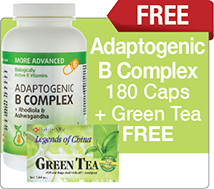Cataracts & Eye Health
Updated Dec. 01st, 2017
A cataract is a clouding of the eye’s lens. It is the most common cause of blindness worldwide. In developed countries, almost all cataracts are successfully treated with surgery. Factors that predispose one to the development of cataracts are old age, diabetes, exposure to radiation or heavy metals, eye injury, the use of medications like steroids and heredity.
Having a cataract is like having a dirty lens on your camera; your vision is fogged, blurred and distorted. Many people with cataracts often become restricted with daily activities because of this, including restrictions on: driving, reading, using a computer or merely watching television.
Cataracts are most often developed through aging and seen in the elderly. These are called senile cataracts which are caused by the eyes exposure to free radicals over time. Free radicals are unstable molecules that bond uncontrollably to other healthy cells to achieve stability. This bonding causes damage to body tissues that is sort of like rust on metal. It has been known for a while that ultraviolet (UV) radiation from the sun, food, and water can provide free radicals to the body and now we know that nutrient depletion from over-farming also contributes.
Treatment of cataracts with surgery is effective, but this does not mean that cataracts have to be inevitable. There are many clinically proven alternative ways to reduce the likelihood of developing a cataract.
To prevent cataracts avoid direct sunlight. Use sunglasses, with full UV protection, to protect your eyes. Avoid drug therapies that predispose you to cataract formation, for example, prednisone.
Smoking generates large amounts of free radicals and is thought to be a risk factor for cataract formation. Reducing your free radical exposure can dramatically reduce the likelihood that you will develop serious cataracts in your lifetime.
A diet high in antioxidants including whole grains, raw fruits, and raw vegetables decreases free radical damage. Eat foods containing lutein and zeaxanthin like broccoli, collards, kale, mustard greens, spinach and turnip greens. Eat foods rich in flavonoids and vitamins C and E like blueberries, blackberries, cherries, and other fruits and vegetables. Yellow fruits and vegetables should be consumed for their vitamin A content. Drink lots of filtered water. Avoid chlorinated and fluoridated water.
It is important to remember that the formation of cataracts is a sign of overall free radical exposure to your body. Because your eyes are more sensitive to oxidative damage, it is manifested there first, but a cataract will also be a sign of free radical damage to other parts of your body, too, but which may not yet be noticeable.























This is a really great company, with excellent service. We've been ordering for a year now and everything we need is here.
Hi Cindy,
We are so happy to have fantastic, loyal customers like you! Helping people both with their health and understanding their health is our motto and we are elated to hear your feedback! Have you seen our new recipe feature on our website? We've linked a delicious, heart healthy, coffee cake recipe below if you're interested to check it out!
https://www.nationalnutrition.ca/articles/healthy-recipes/heart-healthy-coffee-cake/
Please feel free to reach out with and questions and have a healthy day!
Protect your eyes! Yes, sometimes they can be repaired, but it will never be the same again once they start to deteriorate. My dad had cataracts fixed about 25 years ago. Since then, he has had to have them done again twice more. In addition, he has had both lens replaced. Even right after each surgery, he says that he just can't see the same. The worst part is losing night vision. He's scared to drive at night now.